
 The English Language Learners program (ELL) is available to children whose primary language is not English and who require assistance to become fluent. Presently, we have approximately 325 ELL students.
The English Language Learners program (ELL) is available to children whose primary language is not English and who require assistance to become fluent. Presently, we have approximately 325 ELL students.
There are 28 different languages spoken in the Mission Public Schools community:
Albanian, Arabic, Cantonese, Dari, Dutch, Farsi, Filipino, French, German, Halq'emeylem, Hindi, Italian, Japanese, Korean, Kurdish, Lithuanian, Malayalam, Mandarin Chinese, Portuguese, Punjabi, Romanian, Russian, Spanish, Thai, Turkish, Ukrainian, Urdu, Vietnamese.
Refugees and newcomers
Families who arrive in B.C. as refugees have overcome great obstacles and adversity. Awareness and understanding of the backgrounds and needs of students with refugee experience, in addition to their strengths and cultural differences, can help them succeed at school.
Resources
- Students with Refugee Experience: A Guide for Teachers and Schools (PDF, 1.47MB)
- BC Newcomers’ Guide to Resources and Services (available in English, Arabic, Simplified & Traditional Chinese, Dari, Farsi, French, Korean, Punjabi, Russian, Spanish, Tagalog, Ukrainian)
- Welcome to Mission (ELL Brochure)
- TumbleBooks Library
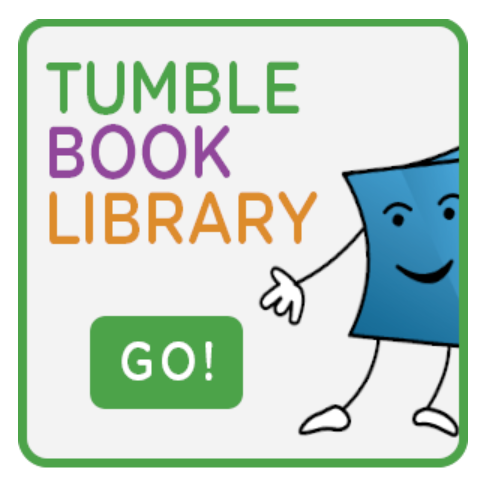
English Language Learning
Takes Time
Basic Interpersonal Skills (1-2 years)
Day to day language of social interaction
Surface level – here and now
Familiar content
Face to face conversation
High frequency words (2,000 words)
Simple sentence structure
Low pressure (mostly for social conversation)
Cognitive Academic Language Proficiency (5 or more years)
Formal, written text, specialized words, humour, idioms, textbook language, lectures, non-verbal communication
More abstract
Less familiar content
Decontextualized
High level literacy required
Cultural and linguistic knowledge often necessary for understanding
Low frequency words
Skills like comparing, classifying, synthesizing, evaluating, and inferring are necessary
High pressure (for academic study and evaluations)
English Language Learning (ELL) Support Can Help:
Develop English listening, speaking, reading and writing skills
Support classroom learning
Provide a more comfortable setting for acquiring new skills and asking questions
Promote classroom routines and school expectations
Develop academic language skills
Develop social skills
Support families and connect them to community resources
Promote a sense of pride and understanding of various cultures and languages
Frequently Asked Questions
- How do I know if my child needs ELL?
If you are new to Canada or if there is another language spoken in your home, your child may benefit from ELL support. An ELL specialist can complete an assessment at your child’s school and make a recommendation as to whether your child may benefit from ELL.
- How can I get ELL support for my child?
You can contact the school to let them know you speak another language at home. An ELL specialist can then complete an assessment. Sometimes principals, classroom teachers or support teachers recognize that a student has another language at home and request that the ELL specialist assess the student.
- What does ELL support look like?
A student’s ELL program is developed based on the assessment, individual needs and input from the classroom teacher. ELL support may take place in a small group setting or in class.
- Is there an ELL reception centre for new Canadians in this school district?
No. Assessments are done at the student’s school by an ELL specialist. A copy of the assessment will be sent home.
- How long can my child receive ELL support?
Language learning takes many years to develop. ELL students in BC may receive up to five years of ELL support. However, every child progresses at different rates and some students may require less than five years and others more.
- Can we continue speaking our home language with our child?
Yes! Research shows that ELL students do best when they have a strong grasp of any home language. By continuing to speak your first language, you will help your child develop a richer vocabulary and higher level thinking in English.
If you speak another language at home, please contact your child’s classroom teacher. They will make a referral to the ELL teacher.
District Vice-principal ELL Program
| Hardeep Grewal
| 604-826-6401
|
District ELL Coordinator/Teacher
| Tianay deAndrade
| 604-826-9239
|
A resource available from Mission Community Services Society
MCSS New to Canada - Settlement Services
(Click on the image to download a printable PDF):


Conversation Circle: Practice English and discuss various topics around
- Welcome to Canada
- Parenting in Canada
- Active Healthy Living and Food
Every Monday and Friday, 12:00 - 1:30 PM, 32860 Cherry Avenue, Mission, BC
Contact Rony Reyes 604-768-7039
Click the above link for more information
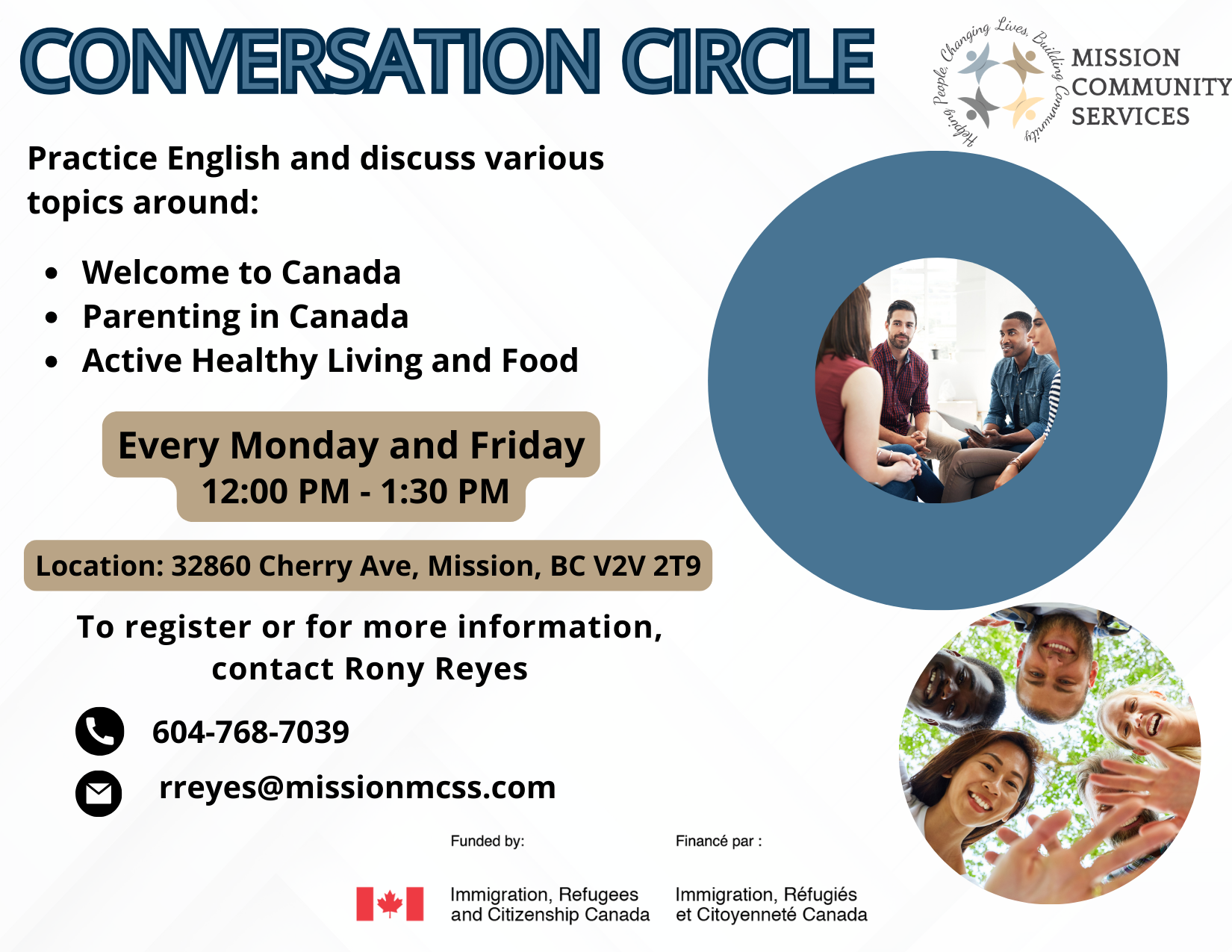
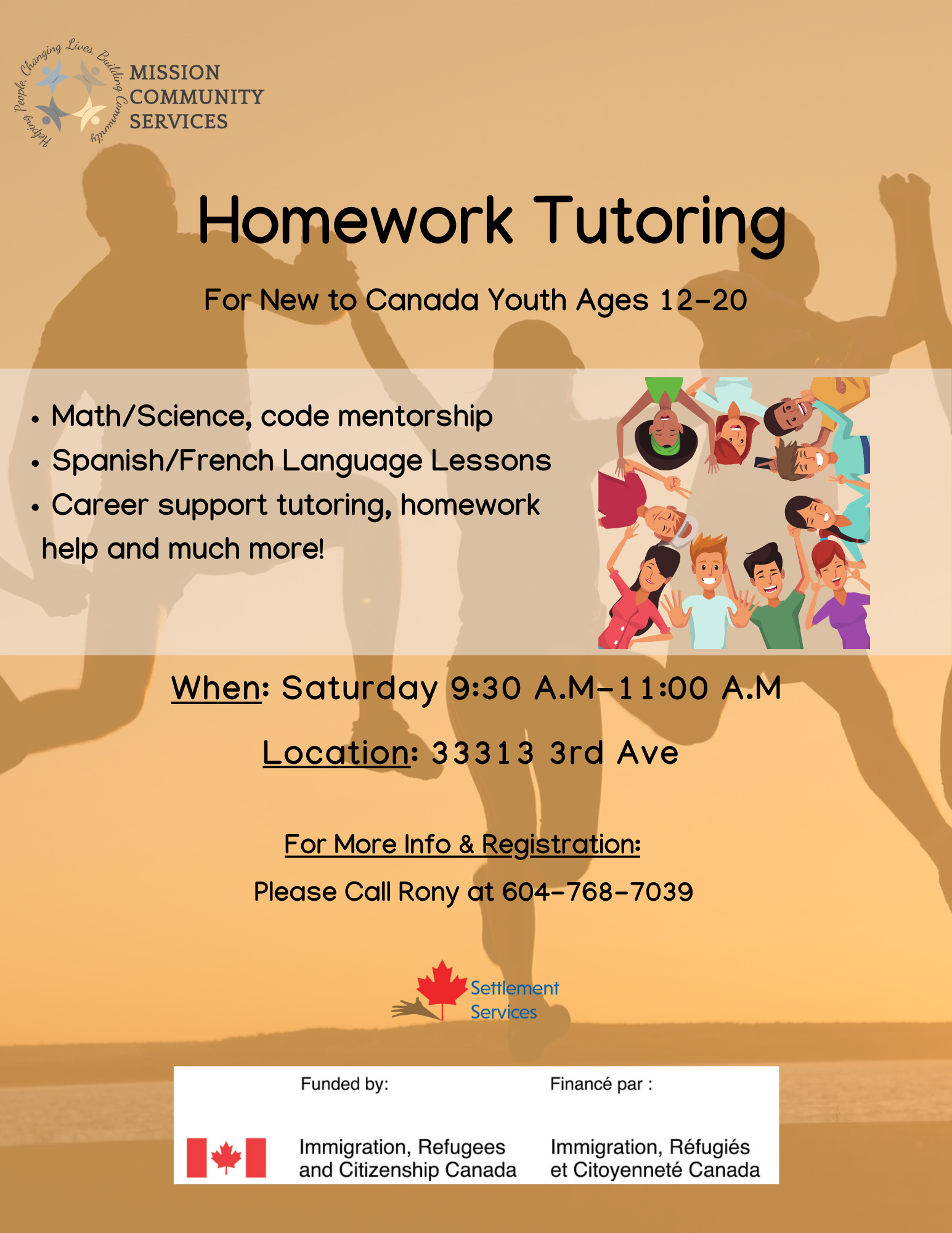
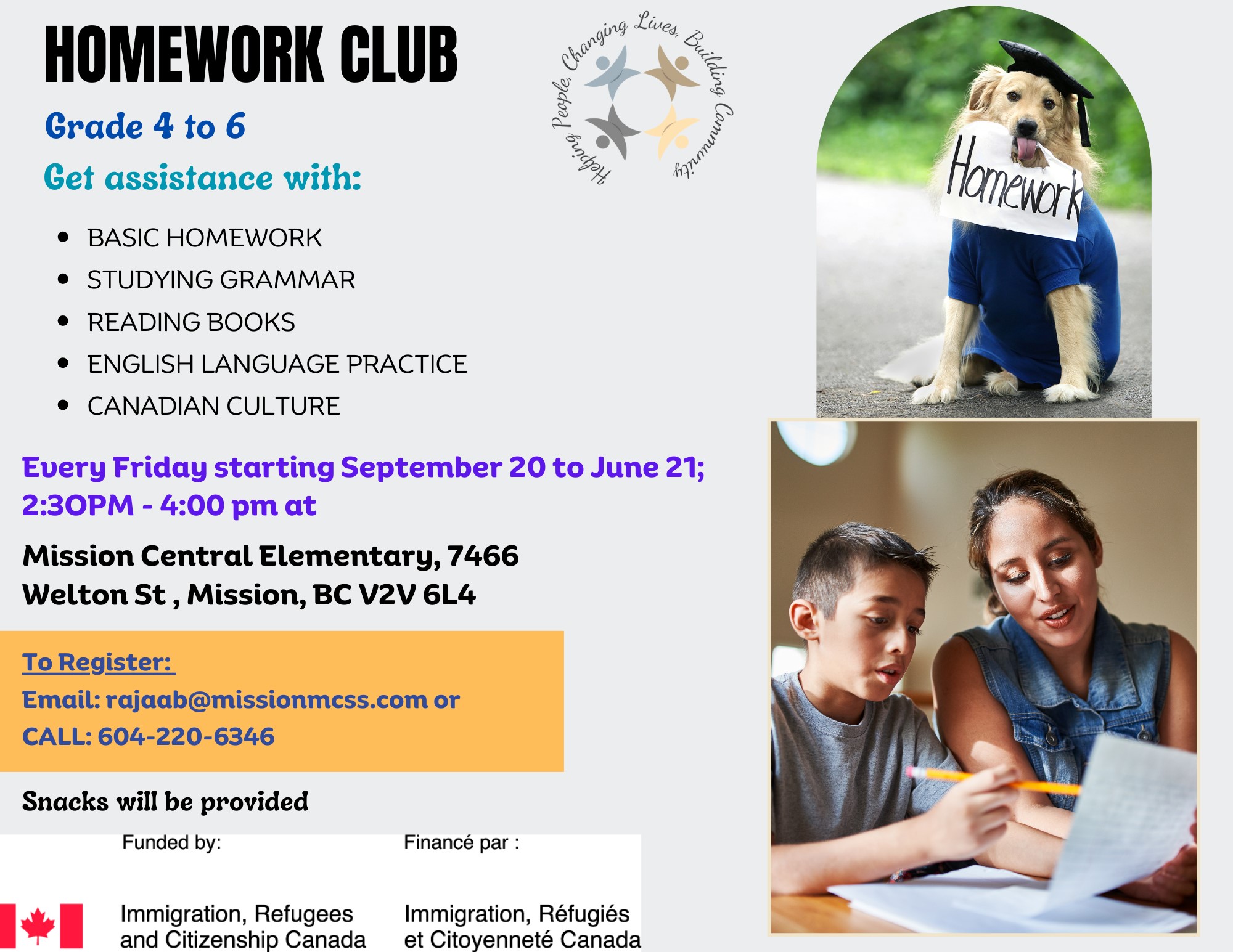
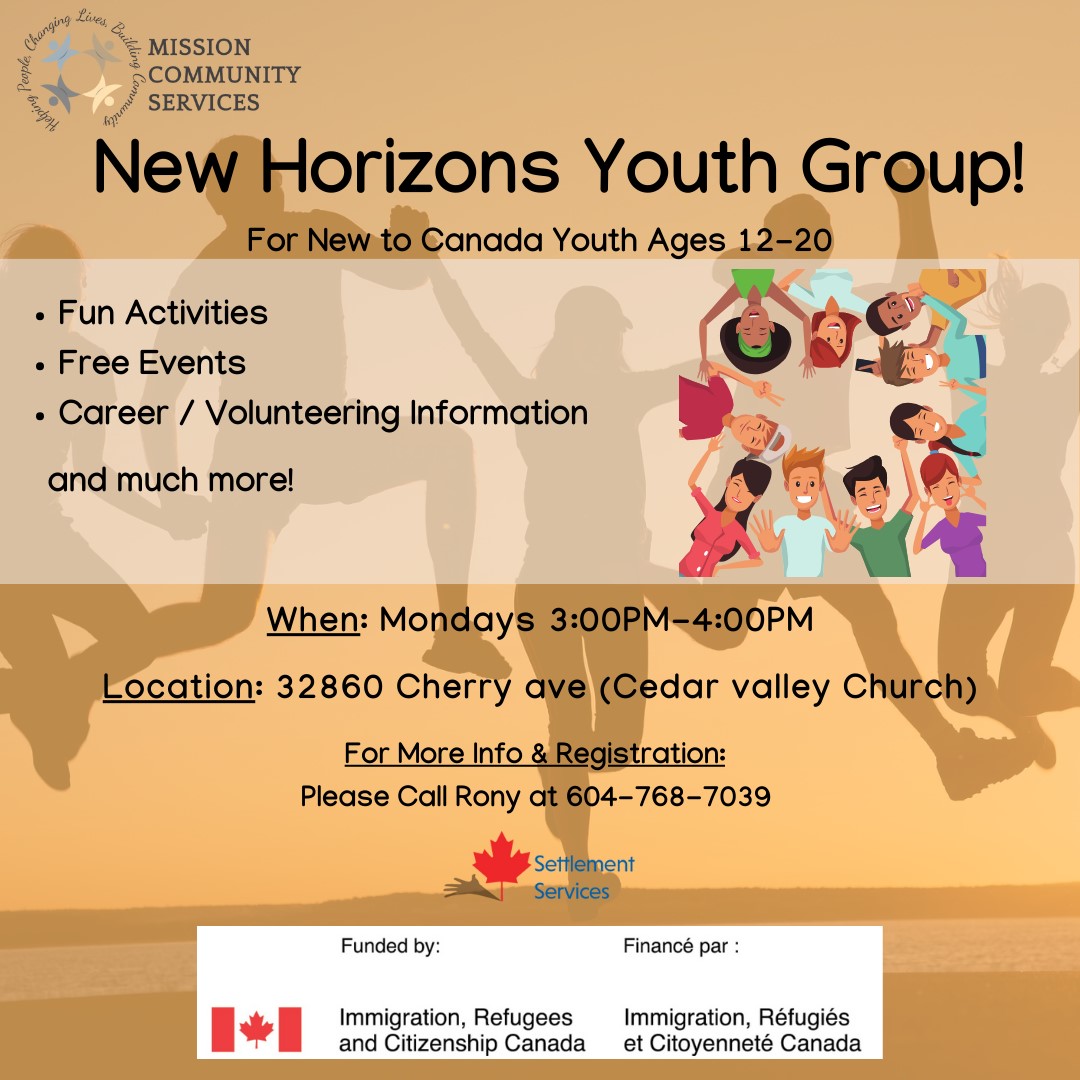
General Inquiry - Mission Community Services
Donate | Volunteer | Support
Phone: 604-826-3634 | Fax: 604-820-0634
Email: info@missionmcss.com
www.missioncommunityservices.com